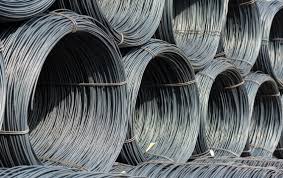
Stainless wire is a critical material used in a wide range of industries and applications due to its unique properties. This article explores the characteristics, types, and diverse applications of stainless wire, highlighting its significance in modern technology and industry.
What is Stainless Wire?
Stainless wire is made from stainless steel, an alloy of iron with a minimum of 10.5% chromium content. The chromium creates a thin, invisible layer of chromium oxide on the surface of the wire, which protects it from corrosion and oxidation. Stainless wire is known for its strength, durability, and resistance to various environmental conditions, making it a preferred choice for numerous applications.
Types of Stainless Wire
Stainless wire comes in various forms, each suited to different uses:
- Straightened and Cut Wire: This type of wire is straightened and cut to specific lengths. It is often used in manufacturing, construction, and as reinforcement material.
- Coiled Wire: Coiled stainless wire is wound into coils and is used in applications where the wire needs to be unrolled and cut to length as needed. This form is common in industrial settings.
- Braided Wire: Braided stainless wire is composed of multiple strands woven together. This design increases flexibility and strength, making it suitable for applications like cables and ropes.
- Wire Rope: A type of braided wire consisting of multiple strands of wire twisted together. It is widely used in lifting, rigging, and construction due to its high tensile strength.
- Mesh Wire: Stainless wire can also be woven into meshes for applications such as filtration, sieving, and fencing.
Key Properties of Stainless Wire
Stainless wire boasts several key properties that make it an excellent choice for various applications:
- Corrosion Resistance: Thanks to the chromium content, stainless wire is highly resistant to rust and corrosion, even in harsh environments.
- Strength and Durability: Stainless wire is strong and can withstand significant stress and wear, which is crucial in structural and industrial applications.
- Temperature Resistance: It maintains its properties at a wide range of temperatures, making it suitable for both high and low-temperature environments.
- Aesthetic Appeal: The sleek, shiny appearance of stainless wire makes it a popular choice for decorative applications as well.
Applications of Stainless Wire
The versatility of stainless wire allows it to be used in various fields:
- Construction and Architecture: Stainless wire is used in reinforced concrete, architectural cables, and structural components. Its strength and durability are essential for supporting heavy loads and withstanding environmental stress.
- Automotive Industry: It is used in the manufacturing of various automotive parts, including brake lines, exhaust systems, and interior components. Its resistance to heat and corrosion makes it ideal for these applications.
- Medical Field: Stainless wire is used in medical devices, surgical instruments, and implants due to its biocompatibility and strength.
- Food and Beverage Industry: Stainless wire is used in filtration systems, food processing equipment, and conveyor belts. Its resistance to corrosion and ease of cleaning are critical in maintaining hygiene standards.
- Industrial Applications: It is employed in machinery, equipment, and wire ropes for lifting and pulling. The high tensile strength and resistance to wear make it suitable for demanding industrial environments.
- Art and Decoration: Due to its aesthetic appeal, stainless wire is used in art installations, jewelry, and decorative features. Its ability to be shaped and manipulated allows for creative designs.
Conclusion
Stainless wire’s combination of strength, durability, and resistance to environmental factors makes it an invaluable material in numerous industries. Its applications range from construction and automotive to medical and decorative uses, demonstrating its versatility and importance in modern technology and everyday life. As industries continue to advance, the role of stainless wire in supporting innovation and reliability will remain pivotal.
